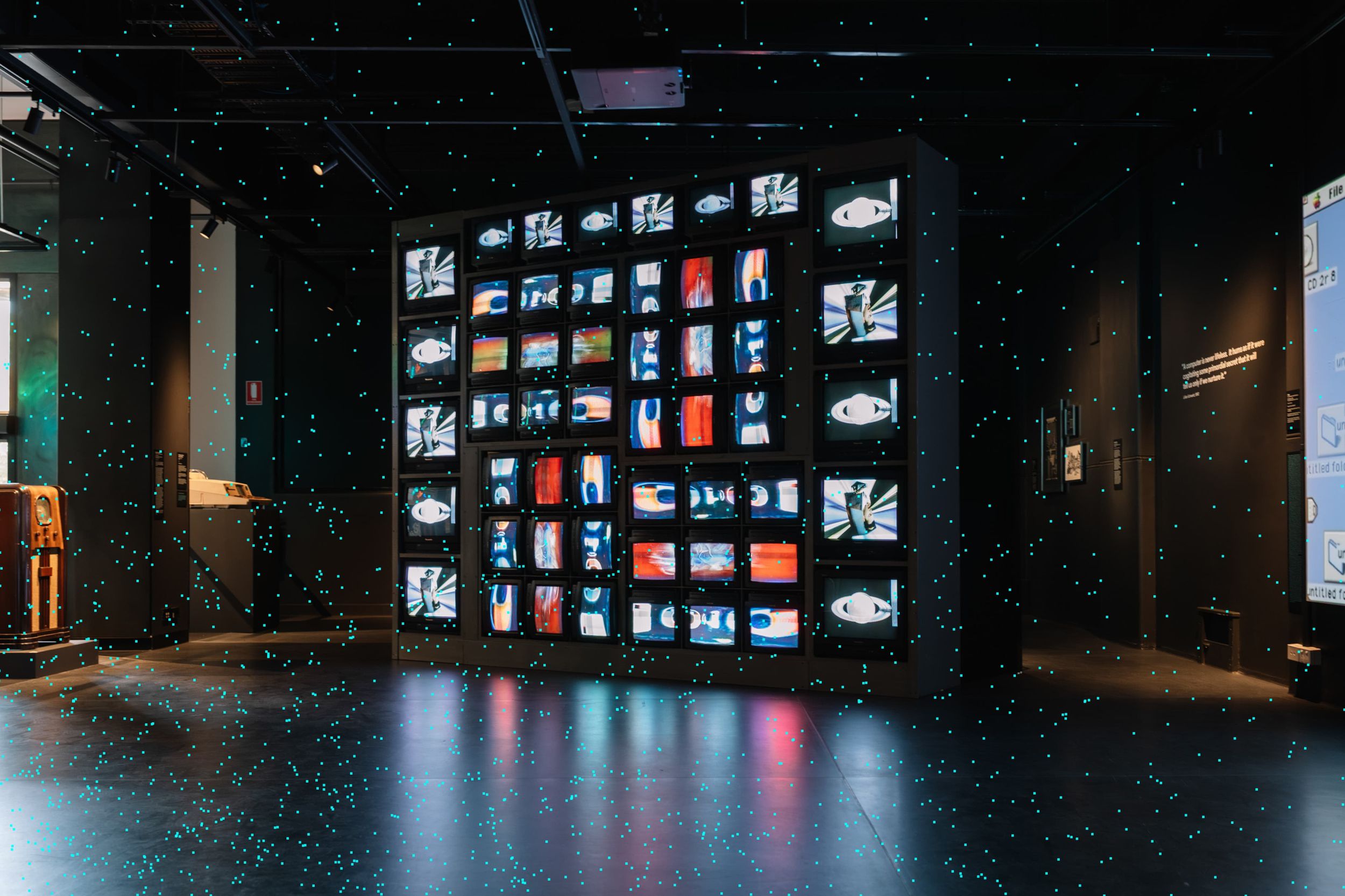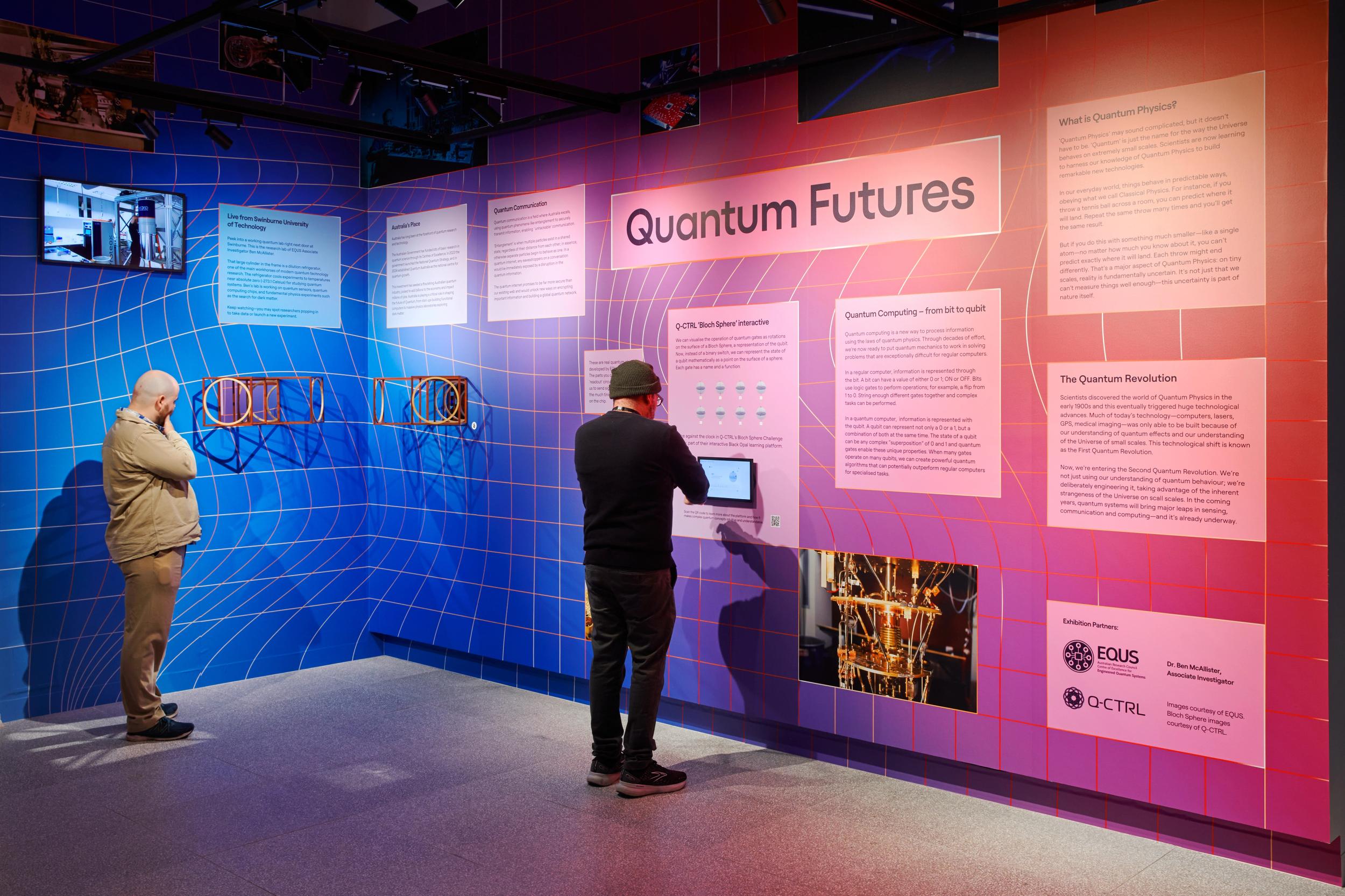Panel Discussion and Publication Launch | Instruments of Surveillance
Programs & Events

Anti-Surveillance Coat Type II, KOVR, 2017. Photo by Suzanne Waijers
Explore the complexities of surveillance technologies in an expert led discussion celebrating the launch of NCM’s first research publication, ‘Instruments of Surveillance’.
From visual art and installations to biometric technology and human rights law, our panellists will guide you through an exciting, multidisciplinary conversation on the good, the bad, and the unexpected facets of everyday surveillance.
On arrival, enjoy a drink from our friends at Noisy Ritual and Ramblers Ale Works along with grazing platters from Firecracker Events. Then, hear publication contributors Weniki Hensch, Jean Linis-Dinco and Christopher O’Neill in a conversation moderated by exhibition collaborator and publication editor Tyne Daile Sumner.
Following the discussion, join us for an exclusive after-hours exhibition viewing of Instruments of Surveillance and be one of the first to purchase our limited-edition publication, 'Instruments of Surveillance'.
Image credit: Anti-Surveillance Coat Type II, KOVR, 2017. Photo by Suzanne Waijers
Program schedule
6.00pm | Doors open 6.30pm | Welcome by NCM Curator 6.35pm–7.30pm | Panel discussion 7.30pm–8.00pm | Exhibition viewing
Moderators comments
In her 1968 poem ‘A Short Essay of Affirmation Explaining Why (With Apologies to the Federal Bureau of Investigation)' the African-American poet Nikki Giovanni writes how surveillance agencies placed,
That little microphone / In our teeth / Between our thighs / Or anyplace.
While Giovanni’s poem invokes a mid-twentieth century context in which insidious Bureau tactics gave rise to Black activism and artistic inspiration, her poem speaks just as forcefully to our current climate of high-tech monitoring, AI, and live facial-recognition surveillance. With their emphasis on the body parts of teeth and thighs, the poem’s lines equally draw attention to the multitudinous forms that surveillance can take, operating across racial, gendered, bodily, class, and socio-economic registers.
Taking this poem as a starting point, this panel brings together three distinct reflections on our exhibition theme: 'Instruments of Surveillance'. It considers how surveillance is enacted, resisted, represented, and subverted through a range of apparatuses in the contemporary realm.
Speakers
Jemimah Widdicombe
Introduction
Jemimah leads the development of temporary exhibitions as Curator at NCM. Her work focuses on the intersection of culture and technology, and is underpinned by foundations in human interaction, research & design and cultural production.
Jemimah's curatorial career spans over a decade of interdisciplinary projects, including strategic exhibitions, collections and content roles at Museums Victoria and the University of Melbourne, coupled with extensive experience in digital research, education and cultural program coordination in Kanaky New Caledonia and France.
Dr Tyne Daile Sumner
Moderator
Tyne is an ARC DECRA Fellow in English & Digital Humanities at The Australian National University (ANU) , with expertise in literary studies, surveillance studies and digital humanities. Her research examines the representation of surveillance in literature, film, art, and other forms of popular culture, with a focus on the ways that literary texts about surveillance help us think about concepts such as privacy, identity, subjectivity and confession. Her first monograph is 'Lyric Eye: The Poetics of Twentieth-Century Surveillance' (Routledge 2021).
Weniki Hensch
Panellist
Weniki is a Papua New Guinean-born multidisciplinary artist based in Naarm/Melbourne. Her translation of cultural connection is informed by ongoing collaborations with institutional collections including from the Museum and Art Gallery of the Northern Territory, Melbourne Museum and the National Gallery of Victoria. Her impetus for working with cultural material is to connect and awaken stories of traditions untold, to enliven the embers and activate family stories and country. Weniki’s work with mixed mediums such as perspex, painting, sound and installation has been an evolving lens transmuting the continual process and navigation of the unpeeling of the ‘self.’
Dr Jean Linis-Dinco
Panellist
Jean Linis-Dinco is a cybersecurity expert and human rights activist, recognised for her work in using technology to promote human rights. Dr. Dinco's projects have consistently aimed at bridging the gap between technological advancement and human rights, ensuring that digital tools serve as a force for good. Her advocacy extends beyond academia into active policy reform and public speaking through her leadership at ASEAN Regional Coalition to #StopDigitalDictatorship, where she addresses global forums on the human rights implications of so called 'AI' and digital surveillance.
Dr Christopher O’Neill
Panellist
Christopher O’Neill is a Deakin University Postdoctoral Research Fellow and an affiliate member of the ARC Centre of Excellence for Automated-Decision Making and Society. He researches the history and philosophy of media, with a particular interest in the mediation of the body, facial recognition technologies, and the role of the human-in-the-loop in automated workplaces. His work has appeared in journals including New Media and Society, Science, Technology and Human Values, and Information, Communication and Society.
Accessibility
Seminar Room
- NCM is fully wheelchair accessible
- This program includes seating for all participants
- All gender and accessible toilets available on both levels
- Hearing loop available
- Auslan interpretation is available on request, get in touch with us at programs@ncm.org.au at least two weeks before the program
- NCM is a high sensory space with a variety of noise and lighting
- If you have any other access needs we can help with, please get in touch, we'd love to help


